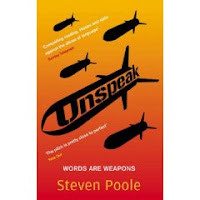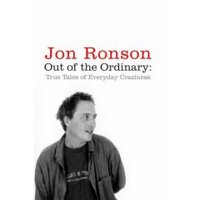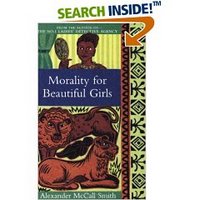by Stephen E. Schlesinger and Stephen Kinzer

This is an excellent and riveting account of the 1954 US led coup against the Guatemalan government. I've heard many times in outline the timeline of events that led to the coup, but never is as much detail or with such a great and engaging story line.
I still find it breathtaking how the foreign policy of the United States towards Guatemala was able to be dictated essentially by one relatively small mulinational company.
Essentially, what occurred was that Guatemala democratically elected a moderately left wing government who enacted very mild social reforrms, including land reforms that threatened the interests of rich landowners and also the United Fruit company. However, the reforms, although left leaning in some ways were in the words of the World Bank broadly in support of the interests of business as a whole, and turning the country into a modern capitalist democracy.
The United Fruit company was also planned to be renationalised, and its assets would be paid for and shareholders compenated. The United fruit comapny acted with horror at this, and a very effective PR campaign was enacted by the their Public Relations manager Edward Bernays. Bernays managed to convince the US government and population that this moderate left wing capitalist governemnt was a bastion of communism and thus a threat to US interests.
The idea that the government had a communist ideology was demonstrotably false, and this underlines the shocking nature of what then followed.
The US was by now convinced that the government of Guatemala posed a threat to US interests, and was committed to covertly destroying it. The CIA managed to employ mercenaries in neighbouring countries and fly in several bomber planes. The US had an arms emargo to Guatemala and had pressured other countries to do the same which meant Guatemala was unable to defend itself.
The proxy army then went on to invade Guatemala, killing and injuring thousands. The desperation of the foreign minister of the time is clear in the book. He repeatedly pleaded with the US government for an end to the bloodshed. Not only did the US not stop the violence, but they openly lied about their actions, denying having anything to do with the coup.
Overall 200,000 people were killed over the next few decades in the civil war that resulted. But what really shocked me wasn't the numbers, it was the culture that developed as a result of the coup. Those in power had no right to be there, and therfore felt no need to serve the people. They served the interests of the powerful and the vast majority continued to live in abject poverty. A culture of impunity developed whereby political oponents were murdered openly, and the courts refused to prosecute them. Overwhelmingly the violence was committed by members of the security forces - police officers and soldiers.
These BBC news stories about the current social situation detail the incredibly high murder rate
of women and of
political candidates. More than one woman a day has been killed in Guatemala this year, and 50 political candidates were assaninated in the run up to the election.
So the US led coup left a very bitter taste in the mouthes of the Guatemalan people. Of course, it is important to remember that in any conflict there is no black and white, and there are often ethical ambiguities.
Take for example the story of Rigoberta Menchú, a Guatemalan peasant who received the Nobel Peace Prize for her work in pressing the civil rights claims of her country's indigenous peoples. A decade earlier, her memoir, I, Rigoberta Menchú, had appeared, and it was immediately welcomed. However, her account in her autobiography was later found to have several misrepresentations, and a professor named David Stoll wrote a book about the affair, in which he tries to replace what he believes to be the prevailing romantic image of Guatemalan rebellion with something that comes much closer to the murky, morally shaded truth.








.jpg)

.jpg)




















